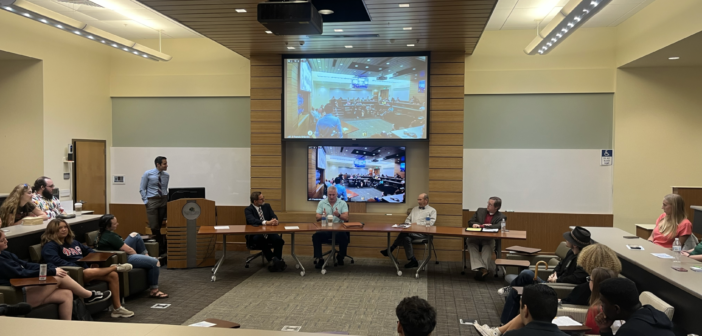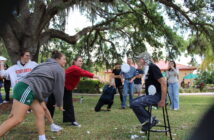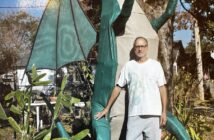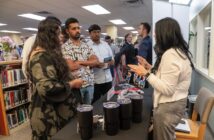By Emily Hernandez Dominguez, Campus News Editor
& Sophia Sullivan, Arts & Culture Editor
On Thursday, September 14 at 7 p.m., multiple students flocked to Saint Leo University’s TECO Hall for an intriguing event: a Constitution Day panel discussion hosted by the social sciences department.
With a different theme every year, the event continues to draw in new students and faculty annually. This year’s theme centered around what the Constitution says in terms of emergency powers and civil liberties. Some recent events mentioned include COVID, immigration, imports, national security following 9/11.
Professor Frank Orlando, political science instructor, moderated the event.
“First, any institution of higher learning that receives federal funds needs to host a Constitution Day event according to federal law,” said Orlando.
The four panelists all hailed from different academic backgrounds: biology, criminal justice, political science, and religion.
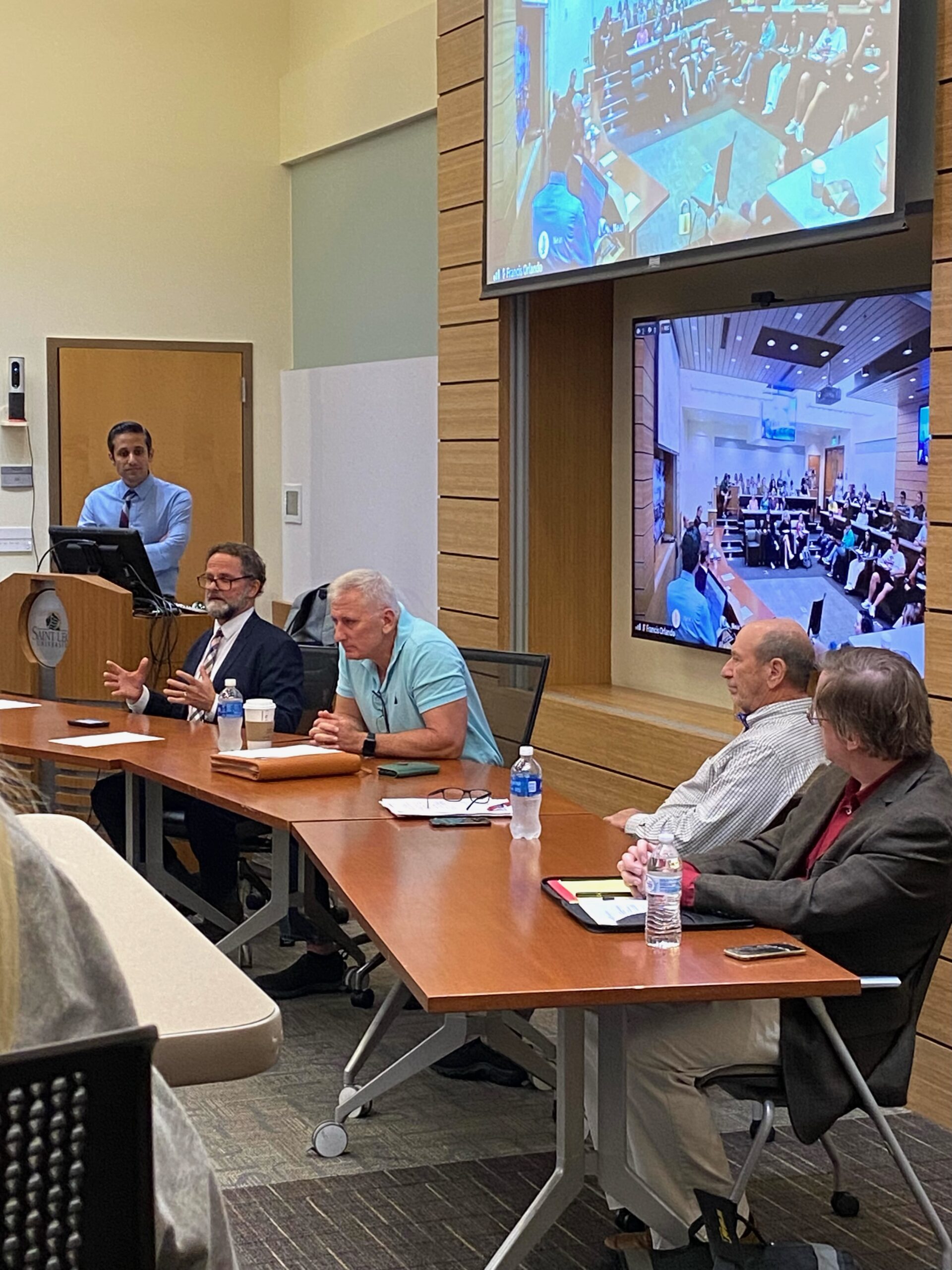
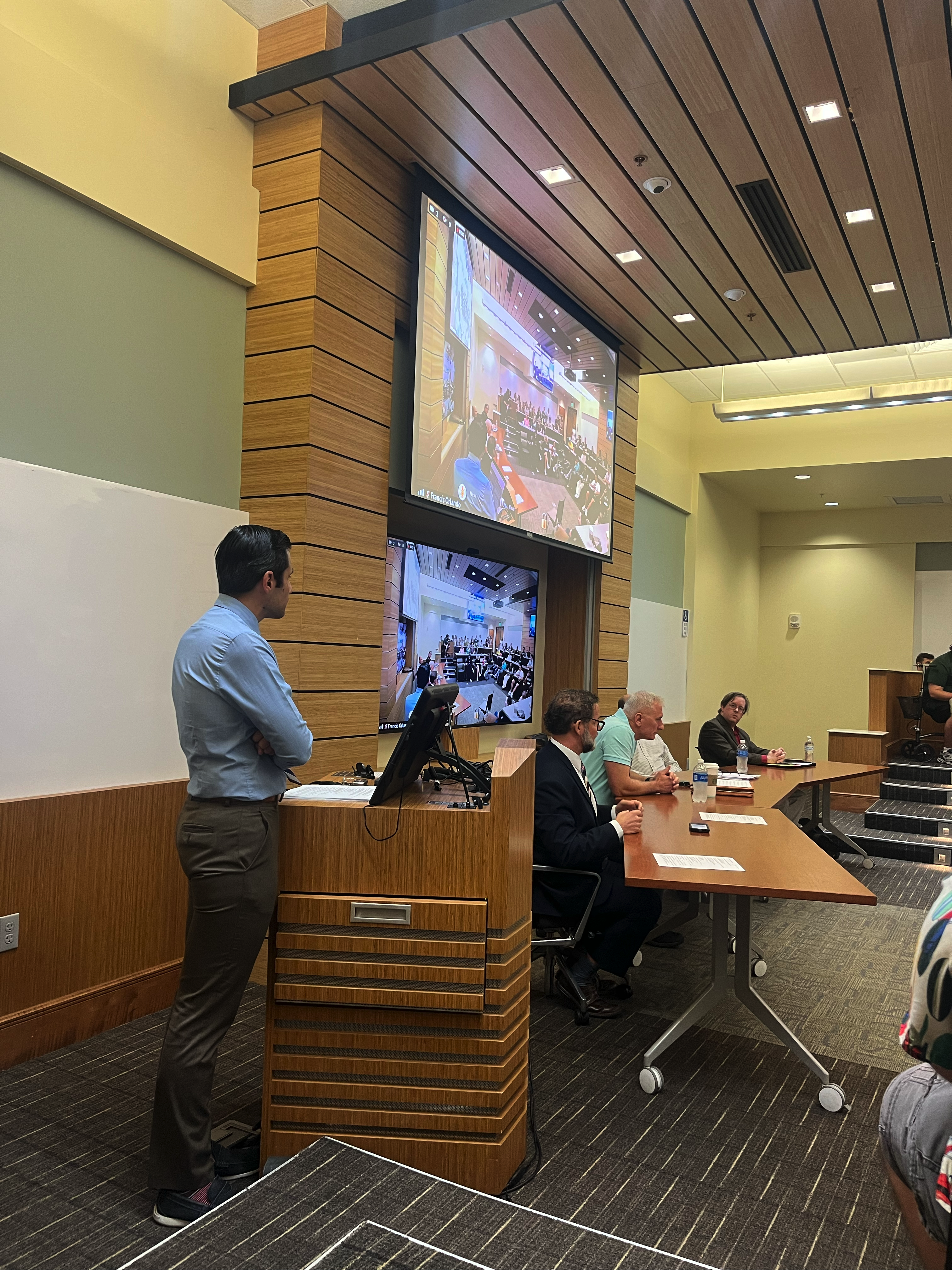
Dr. Austin Trantham, assistant professor of political science, kicked off the discussion with his foundation in political science. He spoke about Abraham Lincoln’s imposition of martial law and local governments’ roles in COVID-19 mandates.
“As someone who teaches about politics and promotes civic education, I believe that Constitution Day is an important event that provides everyone in our campus community with a yearly opportunity to critically engage with and reflect upon significant political, legal and societal issues,” stated Trantham.
Next, Dr. Joseph Cillo, assistant professor of criminal justice, enthusiastically shared his perspective with his expertise in criminal justice, speaking about the constitutionality of mandates and how they compare to laws.
Dr. Eric Hannel, adjunct professor, offered an interesting perspective, as someone who has experience in the armed forces, Capitol Hill, and academia. As such, he spoke about the essentiality of checks and balances in the United States government and brought in a biological perspective.
“The conversation around COVID was a timely topic of discussion and of great interest to everyone in attendance,” said Hannel. “Across the country, discussions about the constitutionality of vaccines and masks have been raised for years, sometimes even by those using disinformation, misinformation, and malinformation.”
Lastly, Dr. Marc Pugliese, the associate dean of the College of Arts, Sciences, and Allied Services, emphasized the conflicting nature of lockdown mandates and religious freedom. He questioned if “liberty is the highest social value” for Americans.
“People along all points of the political spectrum on any number of issues today will seek to ground their positions in the Constitution, analogous to how members of the same religion who hold some very different views will all claim the authority of the same sacred texts for their respective positions,” stated Pugliese.
Here at Saint Leo, community is highly valued. It was evident in the diverse group of students who attended the event and the points discussed.
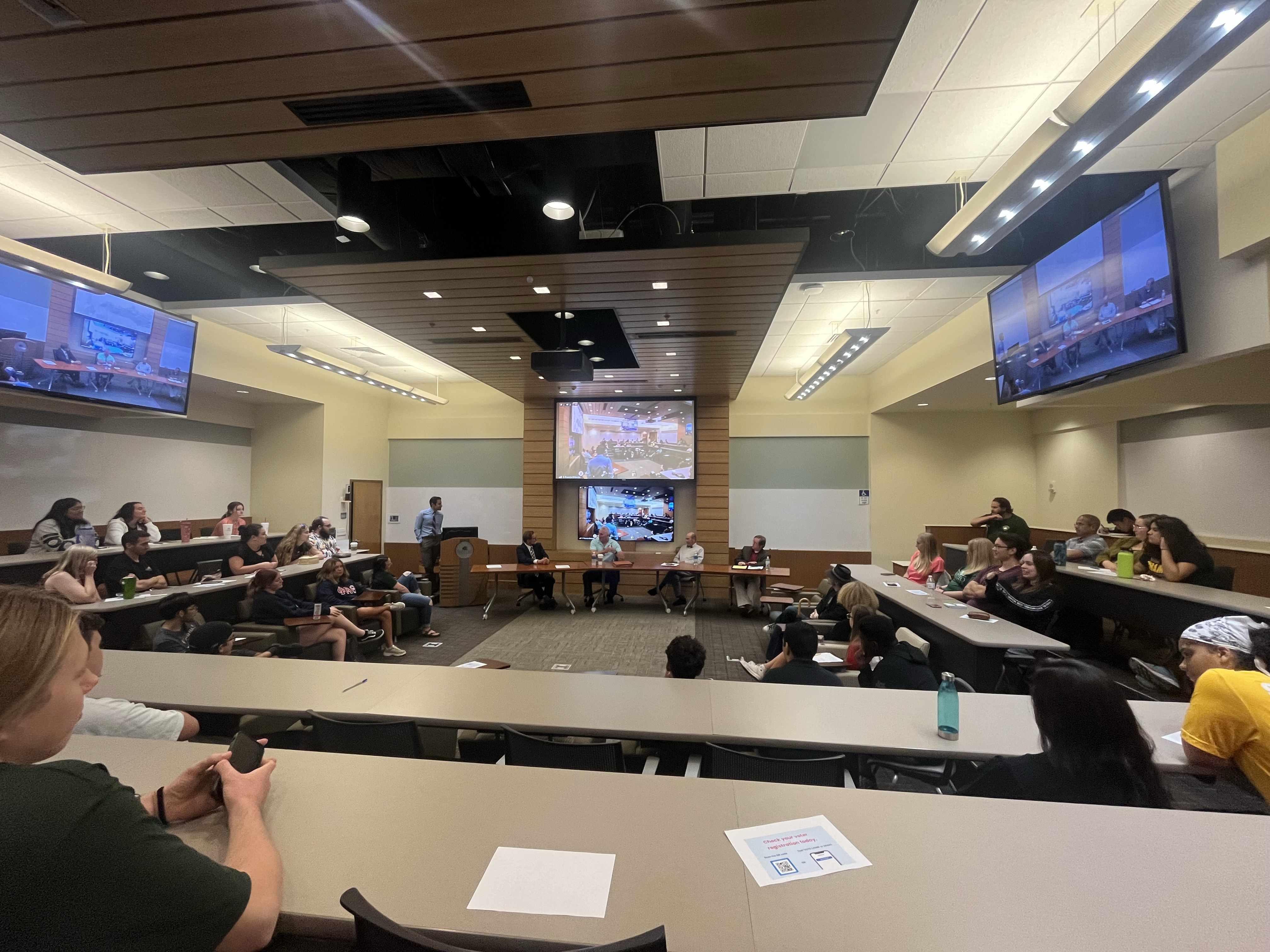
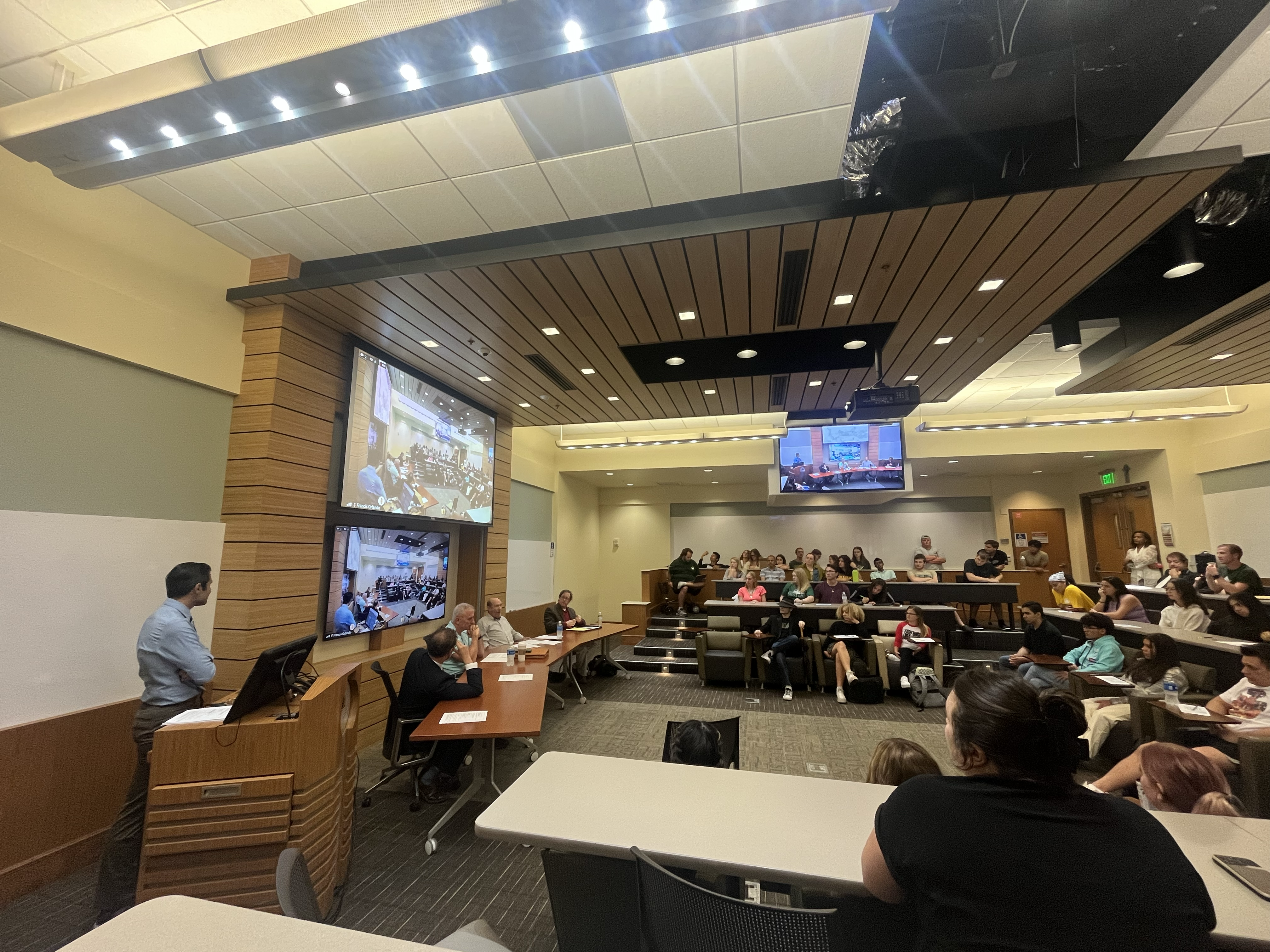
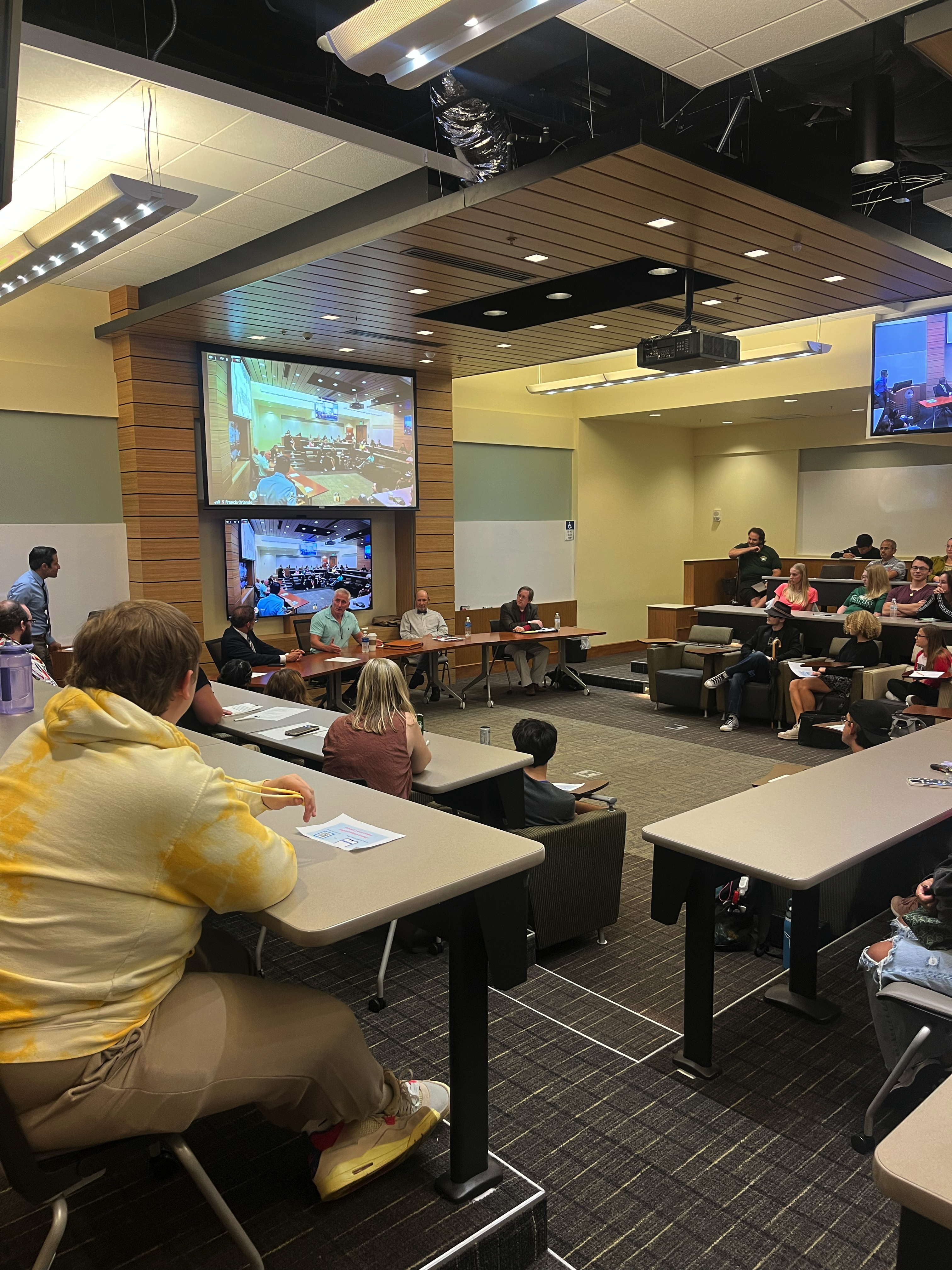
Students participated by completing a Constitution quiz, registering to vote, and asking questions to the panelists to contribute to the discourse.
Constitution Day is celebrated every year on September 17, the day the Constitution of the United States of America was signed in 1887. It was at the Constitutional Convention in Philadelphia, Pennsylvania that the Constitution came to be adopted as America’s code of laws.
136 years later it is still being used to consult on all sorts of contemporary issues such as abortion, gun control, and the election process.
“I hope that all students who attended Constitution Day this year became more aware of how their constitutional liberties can be impacted by political decisions made in response to extraordinary national and global events,” added Trantham.
Just because the Constitution is a piece of history does not mean its contents are in the past. Its significance is still prevalent today, and it will be for future generations if young people continue to rise and speak out. There are multiple ways to let your voice be heard, even as a college student.
“It is important to know the issues, which might require us to learn about important topics from multiple sources for a well-rounded perspective,” advised Hannel. “Become well informed, engage in public discussions (town halls, etc.), vote, watch debates, volunteer to assist in campaigns, speak to legislators about important issues, blog/post issues for discussion, or even run for office.”
Learning about the Constitution is only the foundation of democratic participation. What counts is action.
“It’s your country, your world,” said Hannel. “Engage in your future.”

